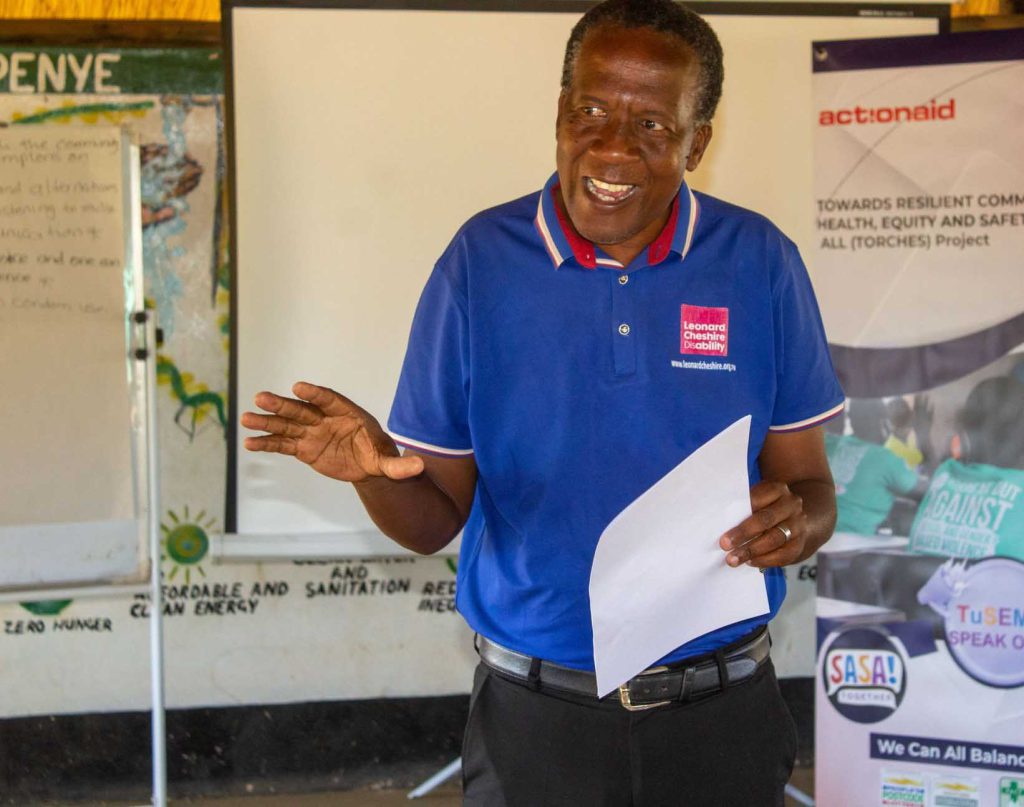SASA! Together is a community mobilisation approach that aims to prevent violence against women and girls and HIV. It is based on the principle of “joining power with” others to create positive social change. One of the key components of SASA! Together is the training of community champions, who are volunteers from different sectors of the society, such as women’s groups, faith groups, youth groups, and local leaders.
This week, Leonard Cheshire Disability Zimbabwe is attending a 4-day training workshop for community champions in Shamva district, organised by the Forum for African Women Educationalists in Zimbabwe (FAWEZI), in partnership with Family AIDS Caring Trust Zimbabwe (FACT), Leonard Cheshire Disability Zimbabwe (LCDZ), and Action Aid Zimbabwe (AAZ). The training is supported by players of Postcode Lottery, who generously funded the TORCHES project.
The training focused on the Support Phase of SASA! Together, The objectives of the training were:
– To enhance participants’ knowledge, skills, and confidence to implement activities of the SASA! Together Support Phase.
– To build participants’ understanding of “joining power with” others to prevent violence against women.
– To enhance participants’ knowledge and skills to support survivors of violence and community members who are making positive changes in their relationships and to hold men who use violence accountable.
During the training, participants learnt about what the Support Phase entails, such as providing emotional support, practical support, referrals, and follow-ups to survivors of violence and those who are trying to change their behavior. We also learned about communication basics, such as active listening, empathy, and non-judgmental attitude. We discussed how to hold men who use violence accountable, by challenging their attitudes and beliefs, offering alternatives to violence, and involving other community members. We also reviewed the safeguarding policy and procedures that we need to follow to protect others and ourselves from harm.
We also had the opportunity to practice using the materials that we will use in the implementation of the Support Phase in our communities. These include posters, leaflets, stickers, story cards, and dialogue guides. These materials are designed to spark conversations and reflections among community members about violence against women and girls and HIV, and how we can support each other to end it.

